Agriculture & Environment
Mak-CAES Hosts Hybrid Seminar on Finding the Best Cattle Genetics for Africa (OPTIBOV project)
Published
2 years agoon
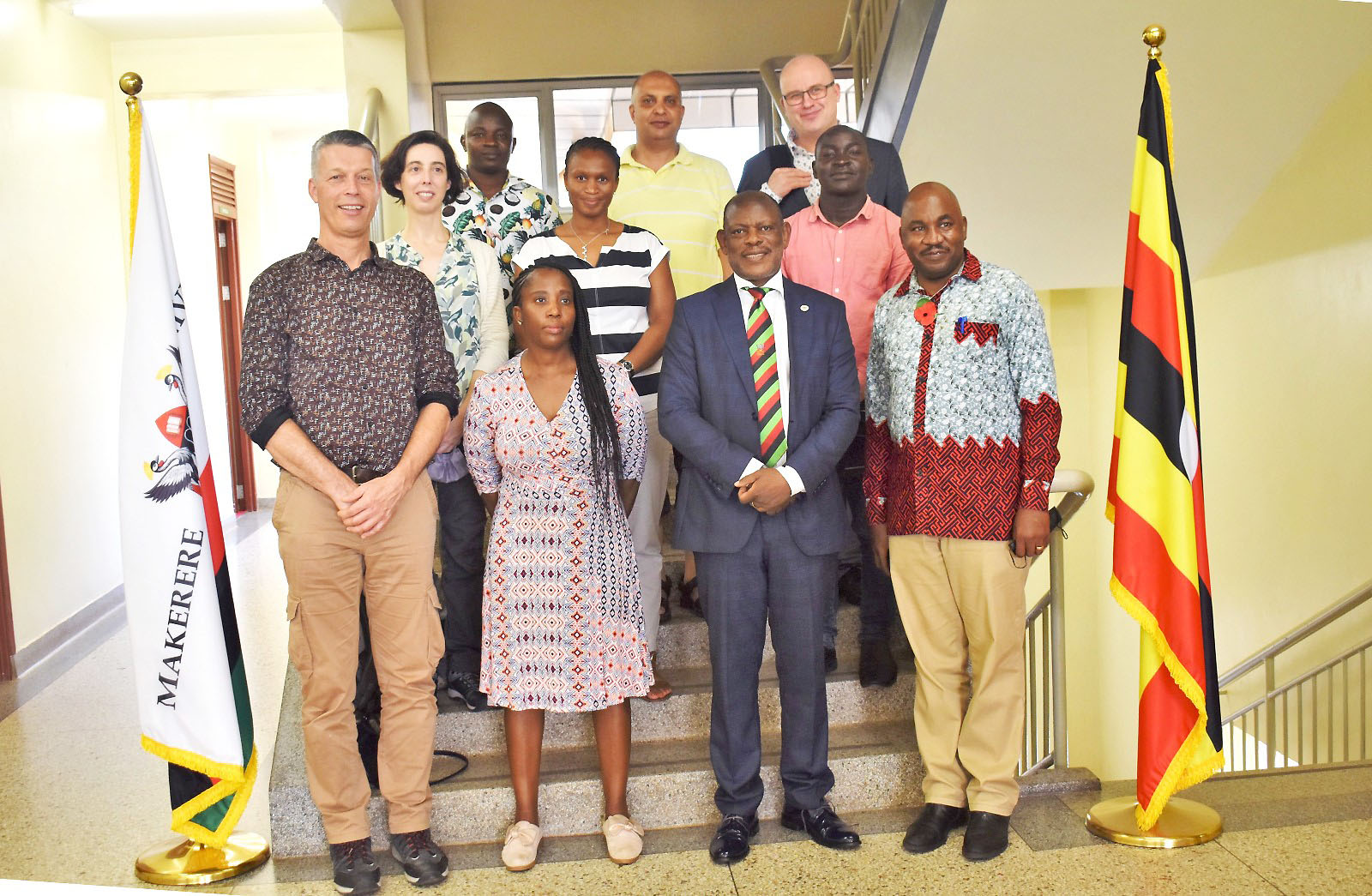
OPTIBOV: Genetic Characterization of Cattle Populations for Optimal Performance in Africa Eco Systems
A large variety of local indigenous and commercial cattle breeds has been produced as a result of domestication and selection. This variety ensures the capability and adaptability of livestock to fulfil its role in food production under different circumstances, now and in the future. Local breeds exhibit unique adaptive features to harsh environments, which can be useful for adjusting mainstream breeds to climate change. Simply transferring high producing commercial animals to the African continent, will not be the solution due to low performance and even low survival under these harsh environments (ecosystems). The aim of the OPTIBOV project is to improve production and survival of traditional/indigenous breeds adapted to the local environments in Africa. This will secure the future of these well adapted traditional/indigenous local breeds.With combined effort from partners across the globe, the OPTIBOV project will help maintain traditional cattle breeds, capture adaptation, use known variations in production, train, educate & involve stakeholders to perform optimal breeding.
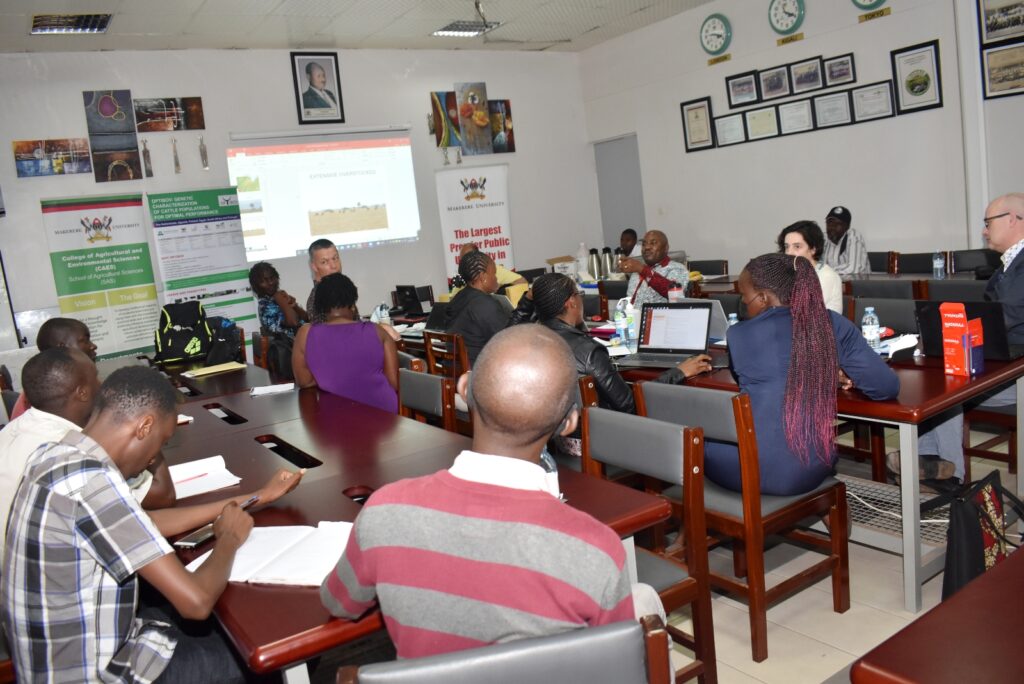
The project is coordinated in The Netherlands (Wageningen University and Research Centre). Participating institutions include; Makerere University, Uganda; Natural Resources Institute Finland; Agricultural Research Council Pretoria, South-Africa; University of Porto, Portugal; Cairo University, Egypt; and Taurus Foundation Netherlands.
Project members include; Dr. Richard Crooijmans, Wageningen University, The Netherlands; Dr. Donald Kugonza, Department of Agricultural Production, Makerere University; Prof. Juha Kantanen, Natural Resources Institute Finland; Dr. Nasser Ghanem, University of Cairo, Egypt; Dr. Linky Makgahlela, Pretoria, South Africa; and Dr. Catarina Ginja from Portugal.
The project is supported by LEAP-Agri, a joint Europe Africa Research and Innovation (R&I) initiative related to Food and Nutrition Security and Sustainable Agriculture (FNSSA).
An important deliverable of the project is a new genotyping assay specific for African cattle breeds which will include markers associated with specific traits.
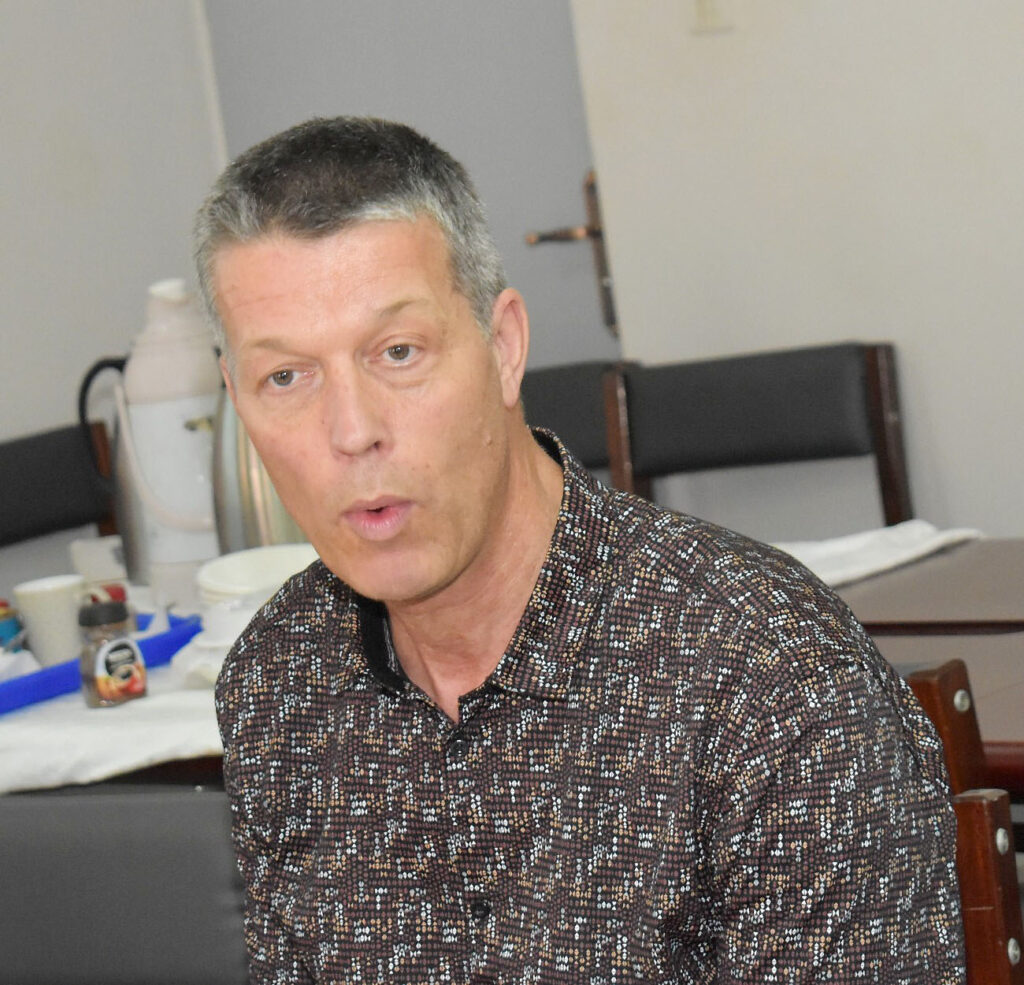
Expected outcomes and impact:
- A uniform bovine phenotype scoring list for adaptation traits.
- Genome-wide information of the traditional breeds. Giving knowledge on the amount of diversity but also on the amount of inbreeding, detection of potential genetic defects and selective sweeps related to adaptation to a specific environment.
- The obtained information can be used to improve traits by selection of animals within or over breeds such as longevity, production and resistance to diseases. This will increase production, longevity and reduces cost for medical treatments which will result in breed performance in the next generations.
- Training of young researchers will be conducted to use the latest technology and techniques and how to implement the findings in breeding.
- Involvement of all stakeholders up to farmers by creating an APP, database and website to submit data and actively participate within the research.
Hybrid seminar
On 25th April 2022, the project team met at the College of Agricultural and Environmental Sciences (CAES), Makerere University to share updates on activities in the respective countries. The hybrid seminar was hosted by Dr Donald Kugonza and Dr Morris Agaba.
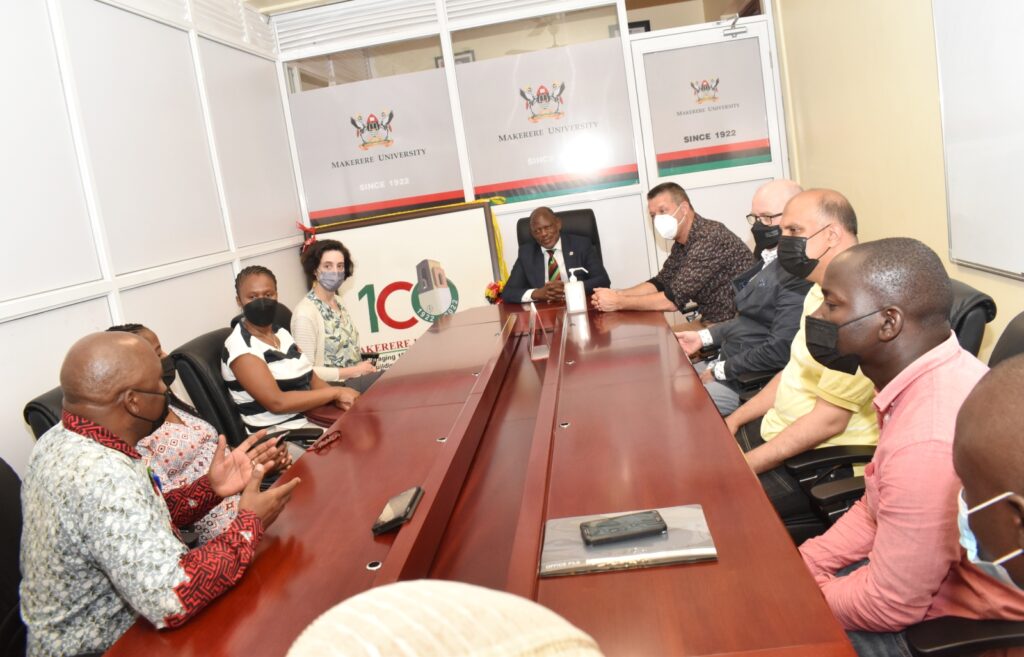
Seminar presentations/issues being researched
- Traditional cattle genomics: search for adaptive markers–Dr Richard crooijmans, Wageningen University in The Netherlands;
- Developments in SNP genotyping and next generation sequencing in South African indigenous cattle – Dr AA Zwane, a Researcher in Animal Breeding and Genetics, Agricultural Research Council-Animal Production (ARC-AP), Irene, Pretoria, South Africa;
- Molecular responses of heat stress during early embryonic development and alleviation strategies– Dr Nasser Ghanem from the Department of Animal Production, Faculty of Agriculture, Cairo University, Egypt;
- Application of genomics for livestock genetic improvement–Dr Linky Makgahlela, ARC-Animal Production, South Africa;
- Genomic characterization of northern native cattle breeds-Prof.JuhaKantanen, Natural Resources Institute Finland;
- Phenotypic and Genotypic Characterisation of Ankole, Ntuku and Nganda cattle of Uganda-Dr.Behabura Generous Betunga, an MSc. Animal Science student in the Department of Agricultural Production, CAES;
- Investigating the production and adaptive traits of indigenous cattle to eastern Uganda ecosystems-Waibi Sarah, an MSc. Livestock Development student at the College of Veterinary Medicine, Animal Resources and Biosecurity, Makerere University;
- The use of Genomic Tools to Improve Cattle, an Archaeogenomics Perspective– Dr Catarina Ginja
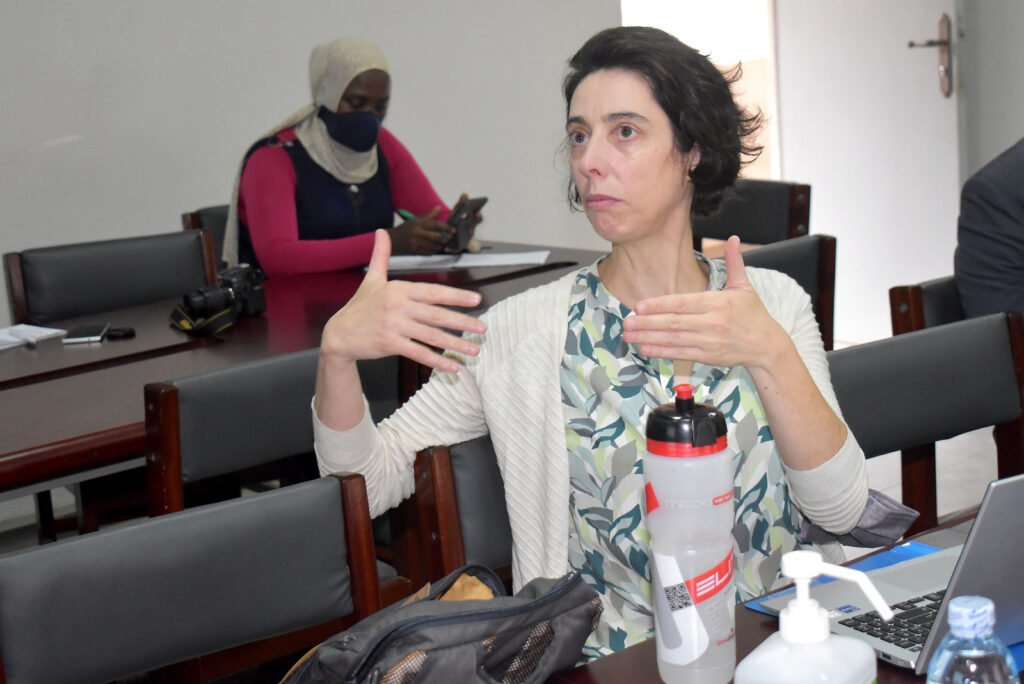
Issues arising from the research
1. Developments in SNP genotyping and next generation sequencing in South African indigenous cattle – Dr. A. A. Zwane
There is notable difference in using single nucleotide polymorphism (SNP) data and whole genome sequence (WGS) data in characterizing SA indigenous cattle breeds
WGS data holds the potential for the improvement of indigenous livestock breeds due to the in-depth analysis genome-wide
Genetic diversity studies give the understanding of population structure, demographic history, introgression and heterozygosity levels in South Africa indigenous cattle
Identification of selective signatures provides insight into selection events that have shaped the genomes of indigenous cattle breeds, and allows the identification of important genes
This will allow genomic selection, sooner, in the indigenous breeds, and more studies are needed for other indigenous livestock species
2. Application of genomics for livestock genetic improvement – Linky Makgahlela, ARC-Animal Production, South Africa
- Genomics drives biological efficiency of production, boosts livestock contribution for sustainable protein source
- Genomics promises cutting-edge solutions: Nutritional needs of all human beings, while safeguarding natural resources, and preventing environmental degradation
- Genomics enables farmers to increase efficiency, decrease production costs & prophylactics and limits expenditure of resources
- Research (and capacity development) ongoing for better understanding of breeds and to put science to practice
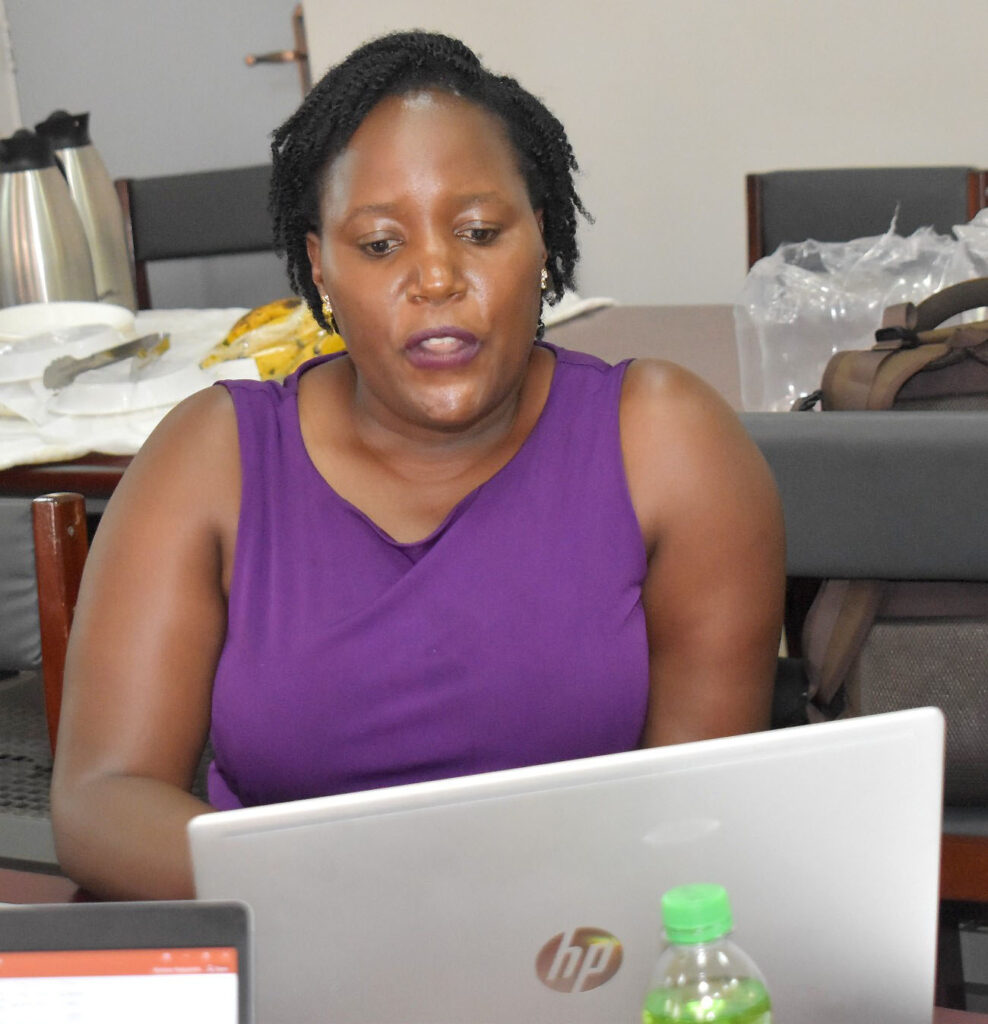
3. Genomic characterization of northern native cattle breeds – Prof. Juha Kantanen, Natural Resources Institute Finland
The gene expression analysis of the northern Eurasian breeds revealed;
- Several differentially expressed genes (DEG) that were associated with the eicosanoid metabolic process (ALOX15, ALOX5 and HPGD) in northern Finncattle and with immunity (CCL4, CCL5 CX3CR1, CXCR6 and PRF1) and the regulation of lipid transport (ABCA1, ABCG1, IRS2 and THBS1) in Yakutian cattle.
- The genes involved in the immune system are also associated with environmental adaptation.
- The eicosanoid metabolic process was previously found to be involved in the hibernation of brown bears (Ursusarctos) and indigenous peoples associated with seasonal changes. These findings indicate a convergent evolution that may have occurred in different mammalian species living in northern and sub‐arctic environments.
4. Phenotypic and Genotypic Characterisation of Ankole, Ntuku and Nganda cattle of Uganda – Dr. Behabura Generous Betunga, Makerere University
The Ugandan cattle herd is comprised of 93.3 percent of indigenous breeds and their crossbreeds which are mainly; Long-horned cattle of Uganda (Sanga) (Bostaurusindicus); Zenga breeds (Sanga and Zebu crosses); East African short-horn Zebu (Bosindicus). The OPTIBOV breeds of interest in Uganda are; Long horned Ankole cattle (South-Western Uganda); Nganda cattle (Central-Uganda) and Ntuku cattle (Mid-Western Uganda). The study aims to carry out phenotypic characterization for performance traits and draw a genomic growth curve for Ankole, Ntuku and Nganda cattle under different management systems for a period of 0 to 18 months in Uganda. It also aims to carry out genetic characterization and measure the genetic relationship between the Ankole, Ntuku and Nganda cattle in Uganda; and to assess selection techniques (natural and human mediated) of Ankole, Ntuku and Nganda cattle of Uganda. Meetings have been held with farmers and animals selected for sampling and samples collected for analysis.
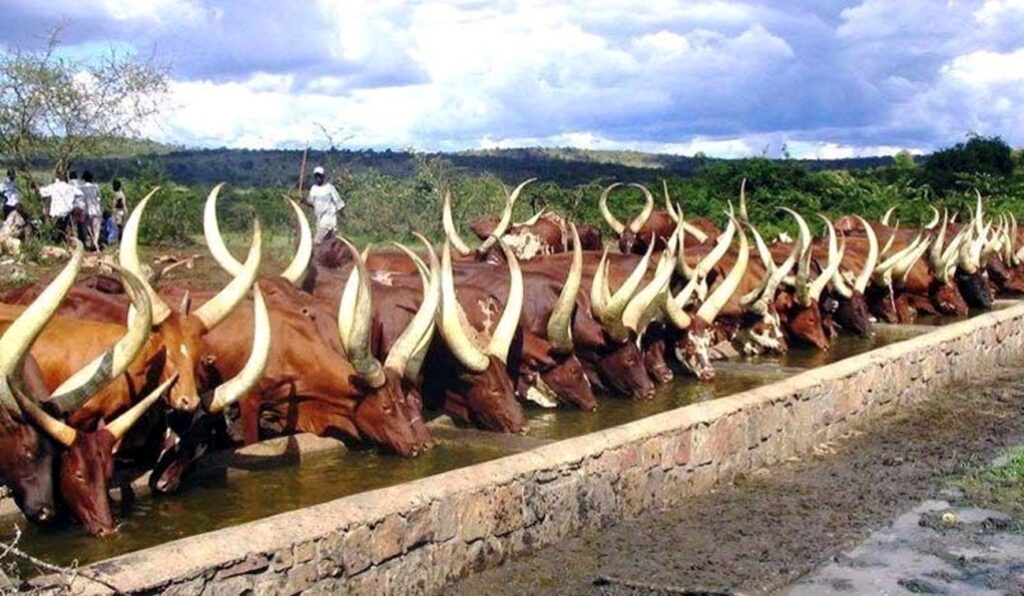
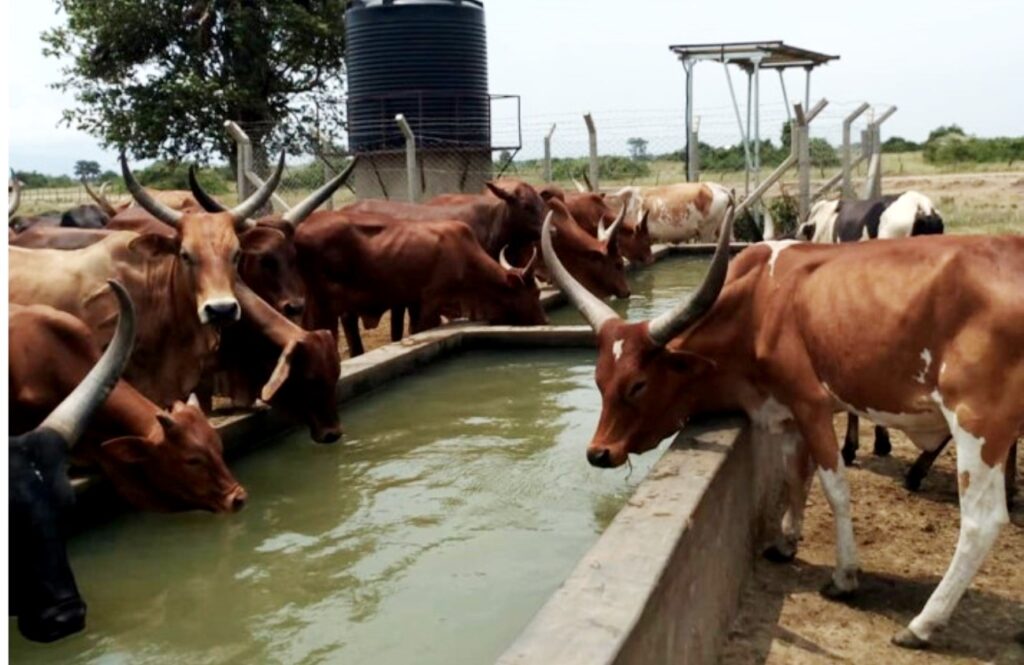
Issues arising include;
- The Indigenous cattle breeds are at the threat of genetic erosion. There is need for Phenotypic & genotypic Characterization for the performance traits of the Ankole, Ntuku and Nganda
5. Investigating the production and adaptive traits of indigenous cattle to eastern Uganda ecosystems
Cattle is a valuable source of income, employment & a major source of nutrition to people in the East especially Karamoja and Bukedi in Tororo. Angoria Ting and Cheptoyoi are the indigenous cattle breeds in Karamoja: Karamajong women prefer rearing goats to cows. The study aims to;
- To phenotypically characterize the performance and adaptive traits of the Nkedi and Karimajong cattle
- To develop indices for assessing the productivity of the Nkedi and Karimajong cattle
- To assess status and risk of erosion of the two indigenous cattle genetic resources
Meeting with Makerere University Vice Chancellor
In the course of the seminar, the OPTIBOV project team paid a courtesy call on Makerere University Vice Chancellor, Prof. Barnabas Nawangwe who congratulated them upon winning the research grant.“As we celebrate 100 years of teaching, research and innovation, such projects are vital in pushing forward our agenda of transforming Makerere into a research-led University,” he noted, pledging to accord the researchers all the support they need to achieve the project objectives.
The project leader at Makerere University, Dr. Donald Kugonza expressed gratitude to the Vice Chancellor for the support he accorded the team in their bid for the project.
Presentations:
You may like
-
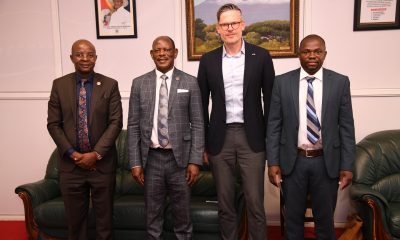

Building Resilience: Makerere Leads Climate Finance Training for Finance Officials
-
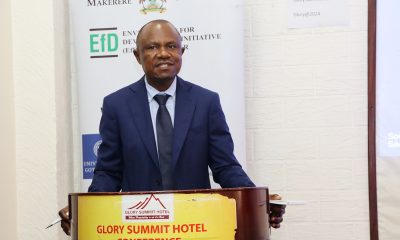

EfD-Uganda Holds Inaugural AGM: Celebrates Milestones and Outlines Future Plans
-
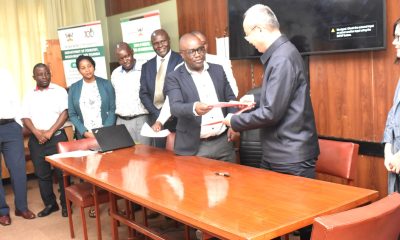

Mak, Nanjing University of Information Science & Technology Sign Collaboration Agreement
-
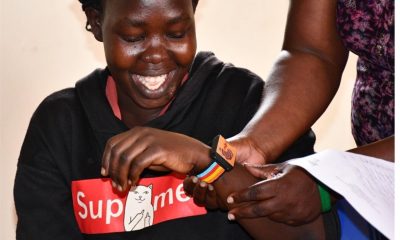

Mak Researchers Partner with Safe Bangle Technologies to Roll out a Real-Time Domestic Violence Reporting Bracelet
-
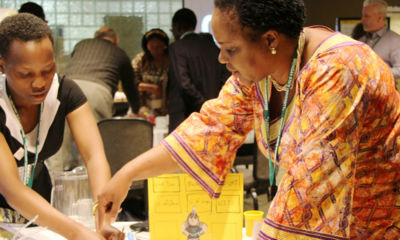

African Futures Research Leadership Program: Cohort 5 – Call for Scholars
-
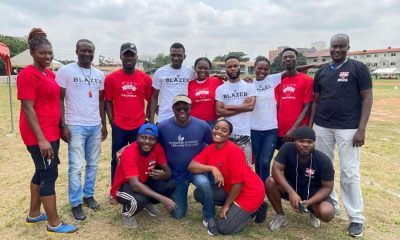

Now Open: CADFP Project Requests
Agriculture & Environment
FoodLAND Project Research Dissemination: Nakaseke District Farmers Sensitized on Modern Agricultural Practices & Proper Nutrition
Published
4 days agoon
July 23, 2024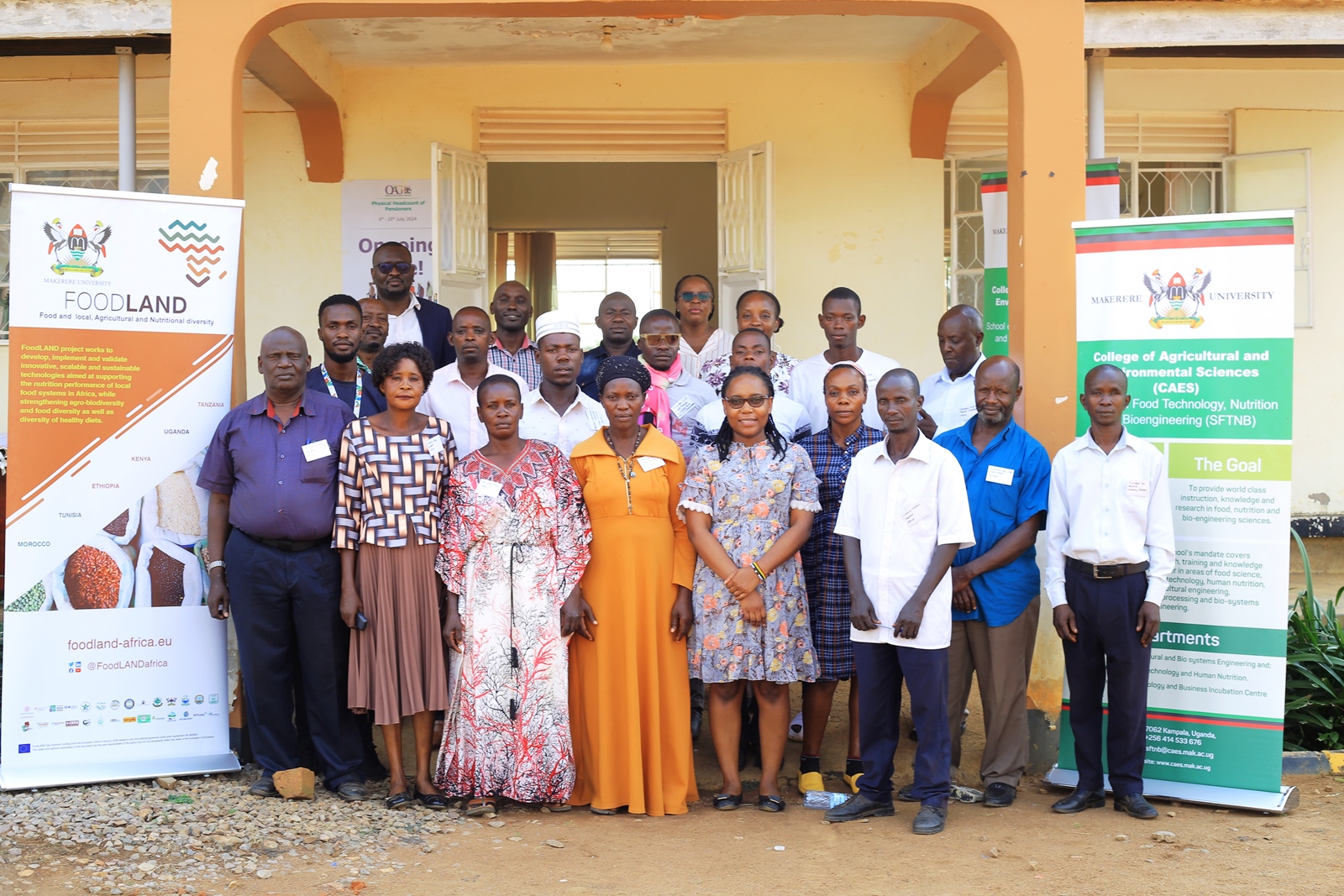
******Food and Local, Agricultural, and Nutritional Diversity (FoodLAND) project aims to develop, implement and validate innovative, scalable, and sustainable technologies aimed at supporting the nutrition performance of local food systems in Africa, while strengthening agro-biodiversity and food diversity as well as diversity of healthy diets.
Experiences of Nakaseke District farmers
Farmers in Nakaseke District are indebted for the support and training received from the FoodLAND Project. Although many had been engaged in the activity, they lacked knowledge and skills of modern farming. Connected to FoodLAND through VEDCO, a non-governmental and not for profit agricultural organization, the farmers have acquired skills on value addition, precision irrigation/fertigation, smart storage systems, gardening and hydroponics systems, biodegradable mulching, precision crop protection systems, precision harvesting systems and agro-ecological intensification practices.
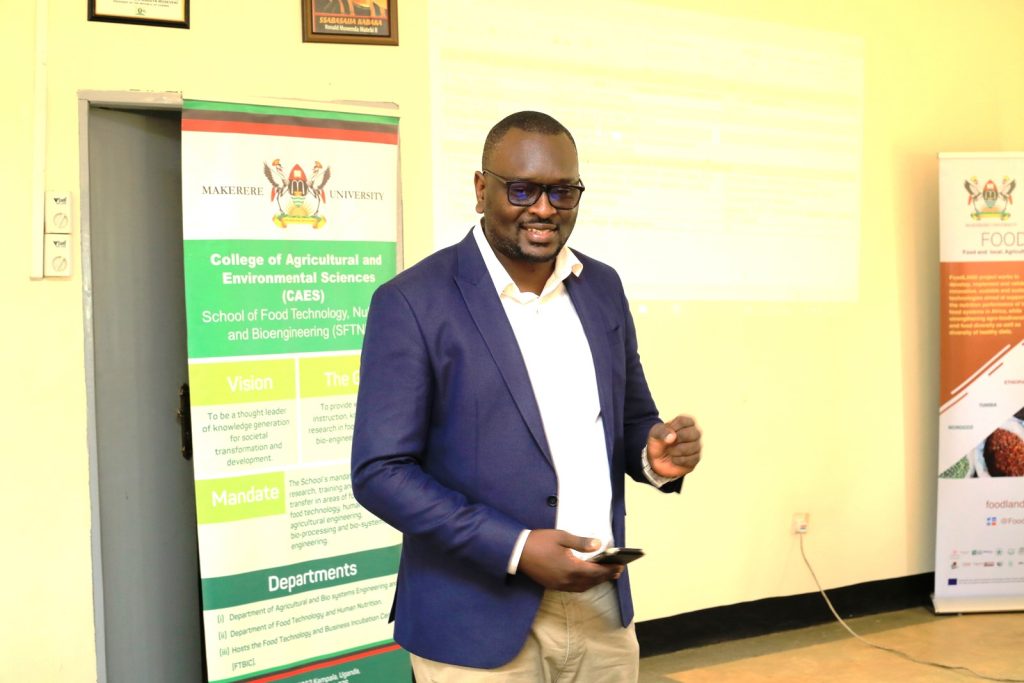
According to Ms. Nakawuba Sarah, a widow and tomato farmer in Kapeeka Sub County, Nakaseke District, the knowledge acquired has enabled her to expand, and gain more profits. “I extend my gratitude to FoodLAND and the funders of the project. The knowledge acquired over time has enabled me to expand my farm and earn more money. Due to ignorance, we used to be exploited – people would buy our products cheaply because we lacked knowledge of preservation. The training on value addition has helped us learn how to preserve our products and we are now benefiting more from them. At the time my husband died, we had just a small house built on his father’s land. I am happy that with the support received from VEDCO and FoodLAND, I have bought a plot of land, built a house, and I am able to pay school fees for my children. I once again thank VEDCO and the FoodLAND. Although the FoodLAND project is ending soon, I request that they do not leave us. They should continue training us so that we further improve our skills.”
Mr. Lubowa Samuel Sunday, also a farmer in Kapeeka Sub County, Nakaseke District is equally grateful. Through FoodLAND, several farmers in Nakaseke District have acquired knowledge of climate smart agriculture. “Farming in the dry season is no longer a challenge. Our harvest has increased and we are now earning more. However we still face a number of challenges including the high cost of fertilizers and pesticides. We appeal to the project team to conduct more research on natural remedies for the challenges we are experiencing.”
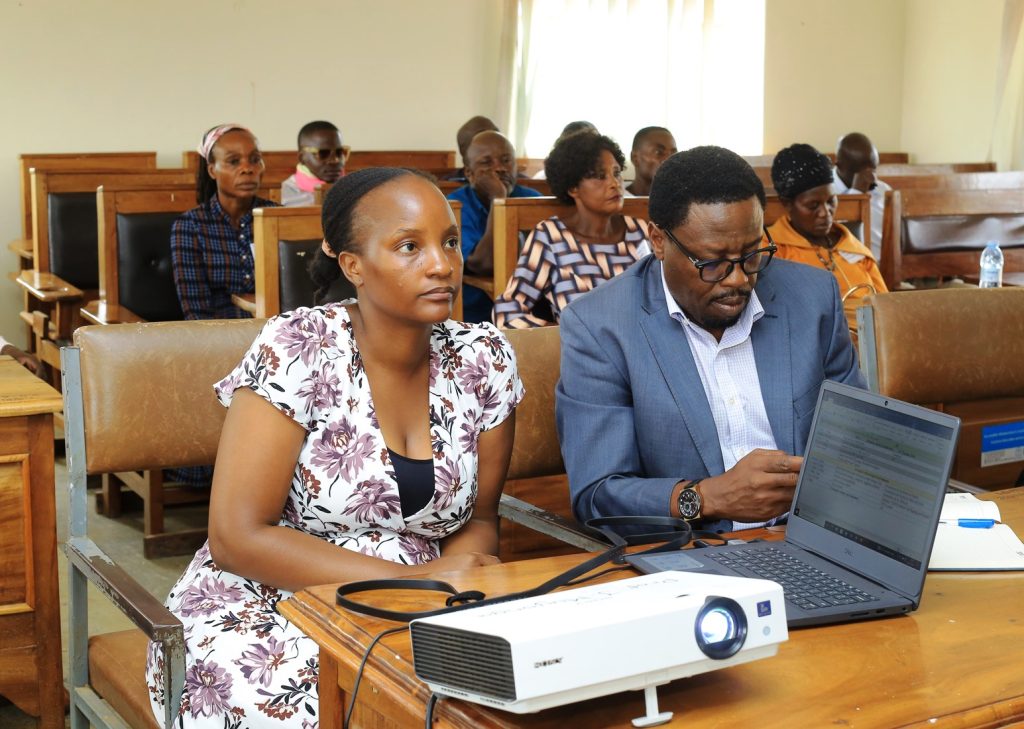
Ms. Nankya Jane, a coffee and banana farmer Semuto Sub County, Nakaseke District, the irrigation skills acquired through the project have greatly improved her farm. “The place where I do my farming was so dry, and this, in many cases, affected my yields. Through VEDCO, we were taken to the Makerere University Agricultural Research Institute Kabanyolo (MUARIK) where we acquired skills on proper irrigation and value addition using technologies developed by the FoodLAND Project. If I had acquired these skills when I started 7 years ago, I would be very far. My appeal is that you continue offering training to us. There is a lot more that we need to learn.”
About the FoodLAND project
Launched in 2020, the main objective of the FoodLAND project was to develop, implement and validate innovative, scalable and sustainable technologies aimed at supporting the nutrition performance of local food systems in Africa, while strengthening agro-biodiversity and food diversity as well as diversity of healthy diets.
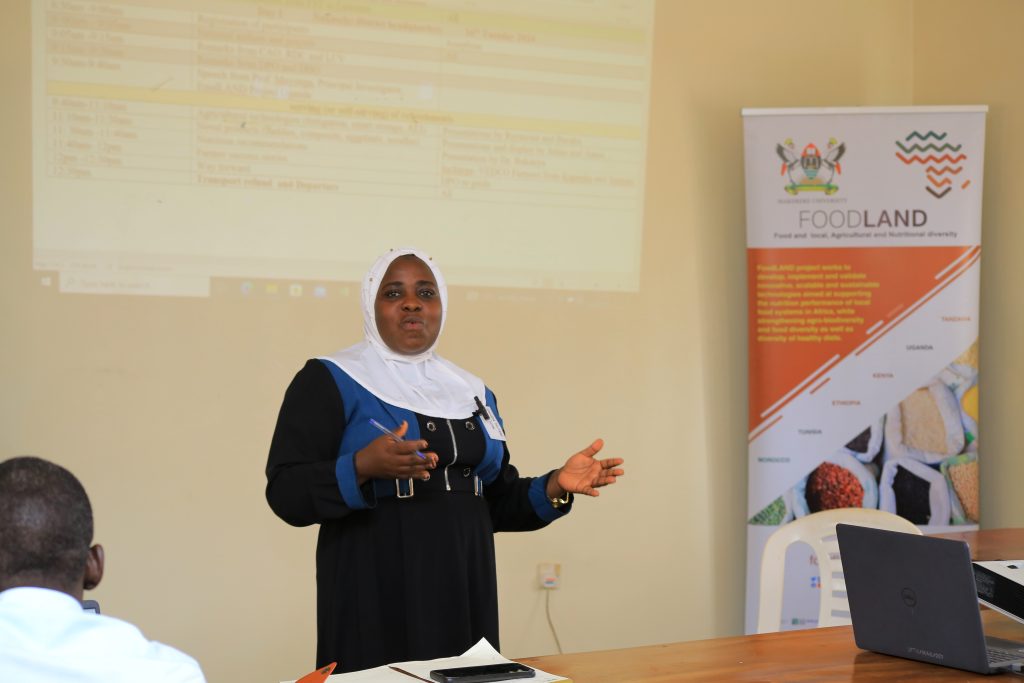
Funded to the tune of 7 million euro by the European Commission within the Horizon 2020 programme, and led by Alma Mater Studiorum – University of Bologna (Italy), the project committed to developing a range of innovations for local agriculture and aquaculture development, as well as to nudging consumers towards healthier eating behaviour in six African countries: Morocco, Tunisia, Ethiopia, Kenya, Uganda and Tanzania. The project specifically aimed to empower smallholder farmers and food operators, foster nutrition responsive and sustainable agro-biodiversity, reinforce the productivity and resilience of food supply chains, and create new market opportunities at both the local and global scales, thereby encouraging the flourishing of rural communities. The project was envisaged to create a network of 14 local Food Hubs—paired with 14 separate cities in these countries—that would mobilise relevant actors in rural, urban and peri-urban communities and serve as injection points for testing and introducing the innovations. The 28 partners that comprise the FoodLAND consortium (18 of them African institutions while the other 10 are European) were expected to work together to develop, implement and validate 12 technological innovations; which include organizational and technological innovations for both vegetable and fish farming and food processing systems, together with 17 novel local food products, ranging from fresh, dried and processed vegetables and fish to composite flours and therapeutic foods.
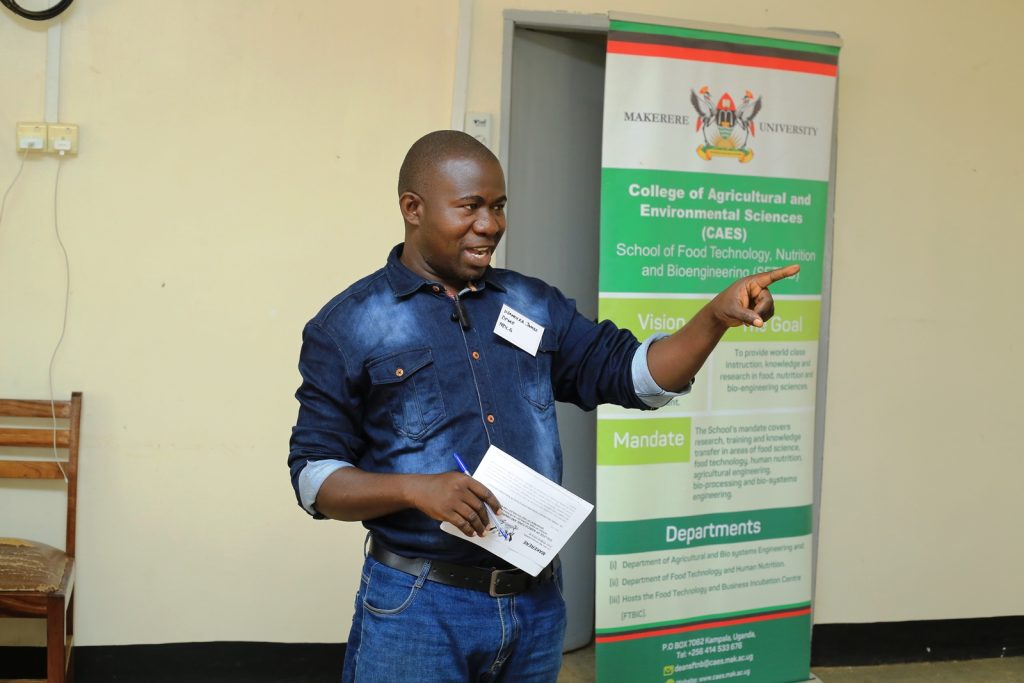
In Uganda, the project was implemented in 6 districts namely; Masaka, Nakaseke, Kamuli, Lwengo, Mukono and Wakiso, and was led by Prof. John Muyonga from the Department of Food Technology and Nutrition, College of Agriculture and Environmental Sciences (CAES), Makerere University. Other members on the project were: Prof. Johnny Mugisha from CAES; Dr. Cassius Aruho, Dr. Puline Nakyewa, Dr. Margaret Masette, Dr. Getrude Atukunda and Dr. Justus Rutaisire from NARO; Mr. Henry Nsereko from VEDCO; and Prof. Dorothy Nakimbugwe from Nutreal.
To date, the project team in Uganda has registered a number of achievements including;
- New nutrient enhanced food products – Noodles containing orange fleshed sweet potatoes and biofortified beans; instant flours containing orange fleshed sweet potatoes, biofortified beans and grain amaranth; and dry eggplant. Arrangements are in place for commercialization of the technologies by SMEs.
- Establishment of infrastructure at MUARIK for research and training on fertigation (irrigation that supplies water together with manure) and precision irrigation.
- Development of technology for smart cold storage of perishable foods such as fruits and vegetables. The technology allows for remote monitoring of temperature and relative humidity.
- Development of technology for rodent control in stores. This technology has been shown to be effective in preventing of rodent damage to food in stores.
- Promotion of agro-ecological intensification – Applying ecological principles to ensure sustainable agricultural production.
- Testing application of bio-based packaging of food
- Training of 100 farmers in different production technologies.
- Training of 3 M.Sc.
- Developing of nutrition guidelines for adults and the elderly.
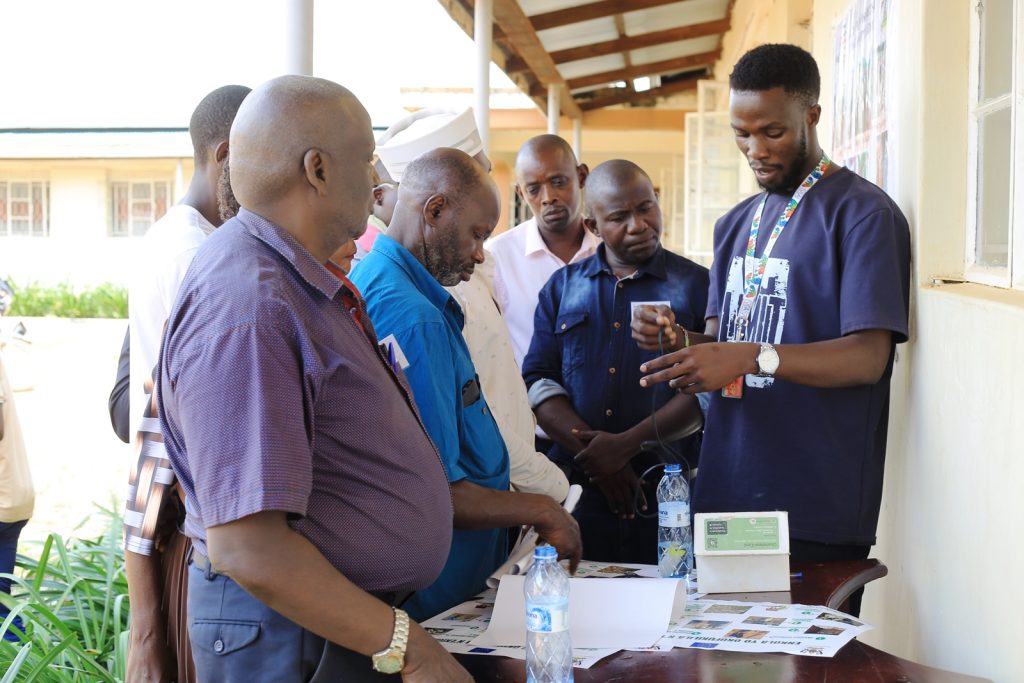
Dissemination of the project findings and achievements to farmers and district leaders in Nakaseke
On 16th July 2024, the project team held a dissemination workshop for Nakaseke District leaders and farmers to sensitize them on different aspects including the research findings and recommendations for improved farming practices. Coordinated by Ms. Josephine Kisakye, and conducted at Butalangu District Headquarters, the workshop was attended by representatives of farmer groups in Nakaseke as well as the district officials, including the CAO, DHO, DPMO and RDC. On behalf of the Project Coordinator, Dr Richard Bukenya, also a member of staff in the Department of Food Technology and Nutrition briefed the farmers on the findings of the project, highlighting the project objectives and progress made thus far, including the technologies, novel raw materials, ingredients and food products developed. Under the project, a number of technologies for smart farming have been developed and are being tested. These include: Digital tools for precision agriculture, farming management systems like the rodent control system as part of smart storage systems, and the food processing systems like the solar drier.
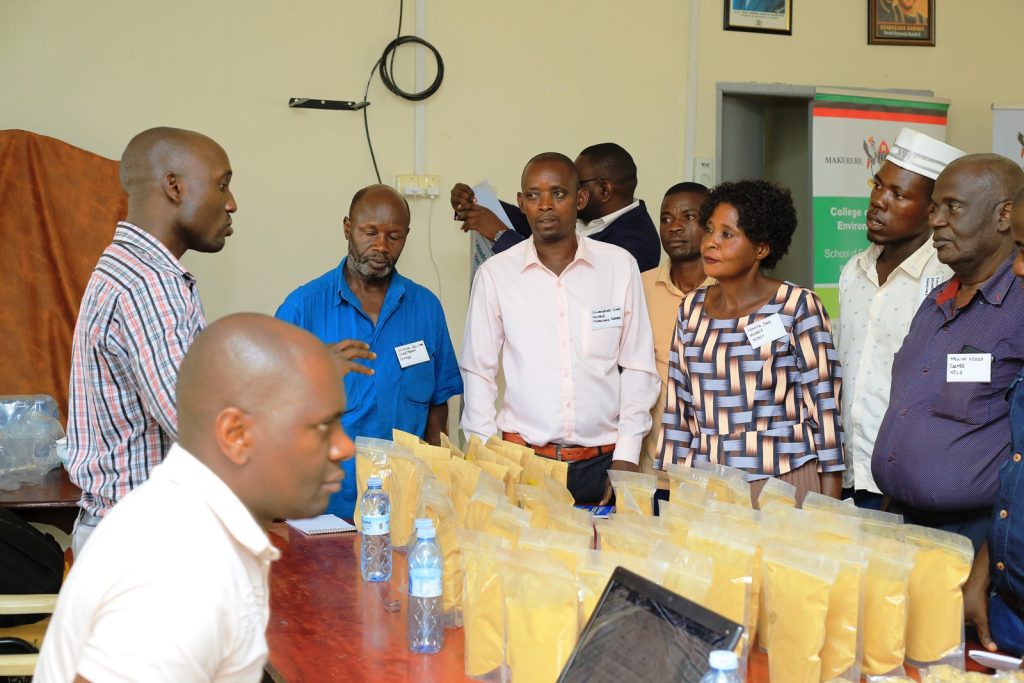
During the workshop, Mr. Barak Price, a student on the project sensitized participants on the rodent control system. He also trained the farmers on precision irrigation/fertigation. The farmers were also taken through the processes of value addition. Ms. Josephine Kisakye, a researcher on the project discussed the nutrition recommendations developed by the project. In the course of the project activities, it was noted that diets in Uganda are mainly composed of starchy staples, especially cereals, roots, tubers and bananas, with legumes constituting the main protein source. Intake of micronutrient-rich foods is low, despite various interventions to promote consumption of fruits, and vegetables. Ugandan adult and elderly population in both rural and urban areas were found to be at risk of under-nutrition and micro-nutrient deficiencies. Nutritional recommendations included: i) Daily consumption of locally available fruits and vegetables, whole starchy staples, and protein-rich foods; including beans, peas, nuts, fish, eggs, and meat; ii) Limiting the consumption of fried foods, salt, alcohol, and sweetened beverages; iii) Hydrate with fluids, preferably water; Regular engagement in moderate-intensity physical activity like brisk walking, digging, swimming, aerobics, and cycling; vi) Undertaking medical examination at intervals of no longer than 6 months to facilitate timely detection and treatment of ailments like diabetes, hypertension, high plasma cholesterol and cancers.
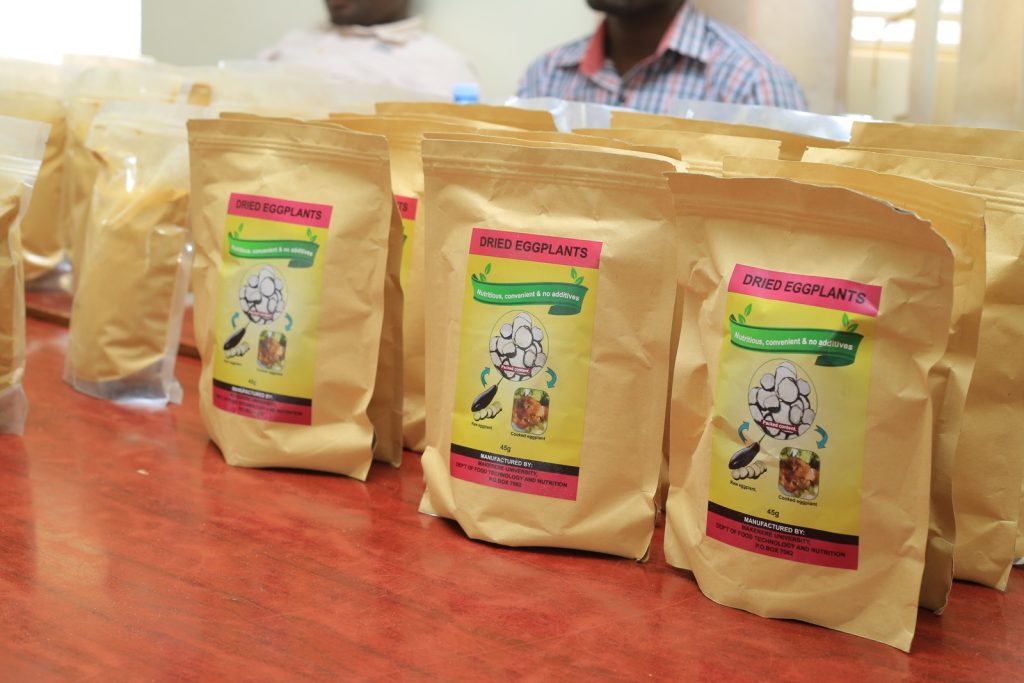
Appreciation by the District officials
Butalangu Town Clerk, Ms. Rashida Mutebi on behalf of the Chief Administrative Officer appreciated the project for reaching out and working with the local communities to improve their livelihoods. “The trainings on value addition will go a long way in saving our farmers losses,” she noted, calling for resilience and cooperation amongst the farmers. “It is important that you work together. Always share best practices if you are to improve yourselves and gain more from farming. I also implore you to always keep records of your farming activities.”
In his remarks, Nakaseke District Health Officer, Dr Alija Simon noted that the challenge of non-communicable diseases was on the raise due to poor feeding habits. He expressed gratitude to the project for incorporating the important aspect of nutrition in its research.
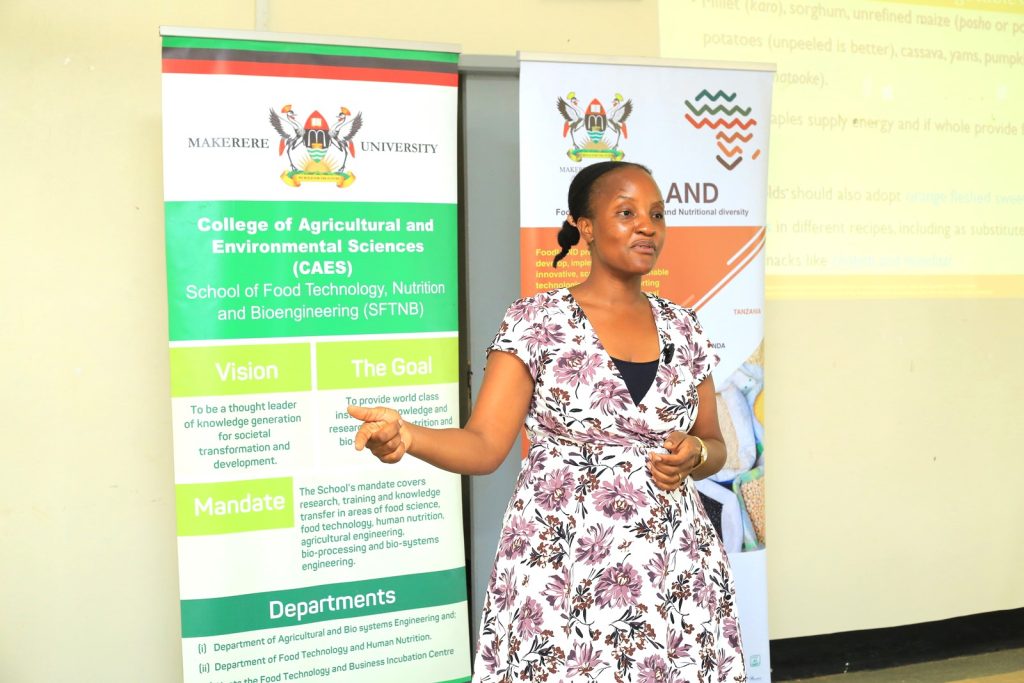
DPMO Wandera James appreciated the Government of Uganda for investing in farming. He also appreciated the project team for the trainings offered to the farmers in the district, noting that value addition was a key area of focus in the Parish Development Model. “Nakaseke is now becoming a food hub. I thank Makerere University for working with the communities. Initially, research was done but stopped in the shelves of the University. We are happy that you are now working with the communities to identify solutions to the challenges undermining agriculture. Research should be conducted for development.”
Addressing participants, the Assistant RDC, Nakaseke District, Mr. Muhoozi Michael appreciated Makerere University, specifically the FoodLAND Project, calling for more innervations to support farmers in the district out of poverty. He implored the farmer groups to form a cooperative, noting that the latter forms a better platform for soliciting support.
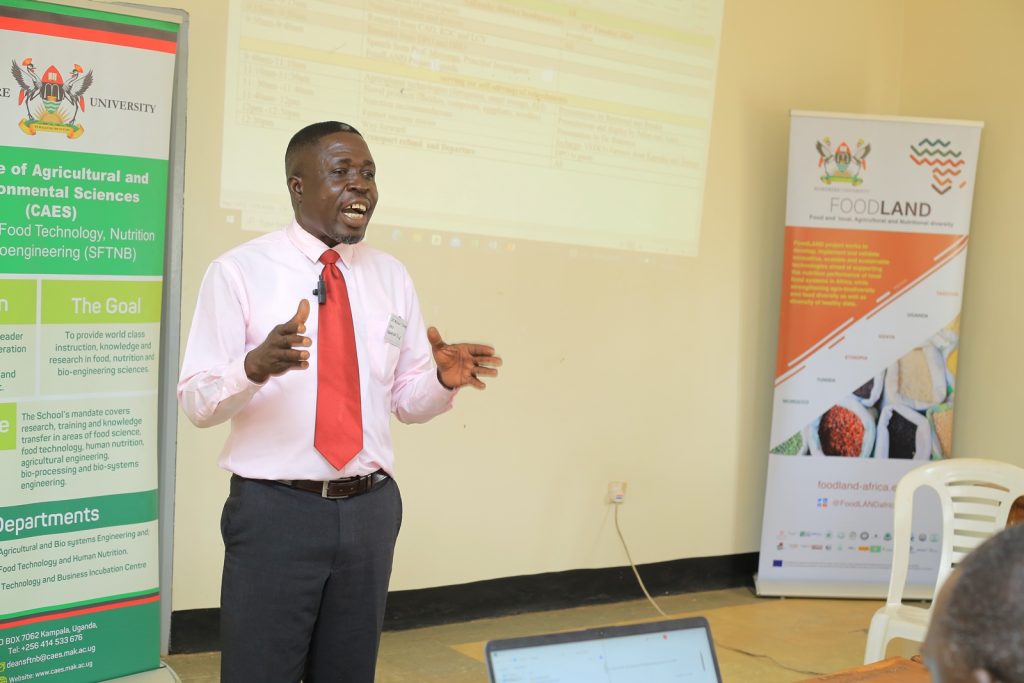
A similar dissemination exercise was conducted in Kamuli District in Eastern Uganda.
More photos from the FoodLAND project Nakaseke Dissemination
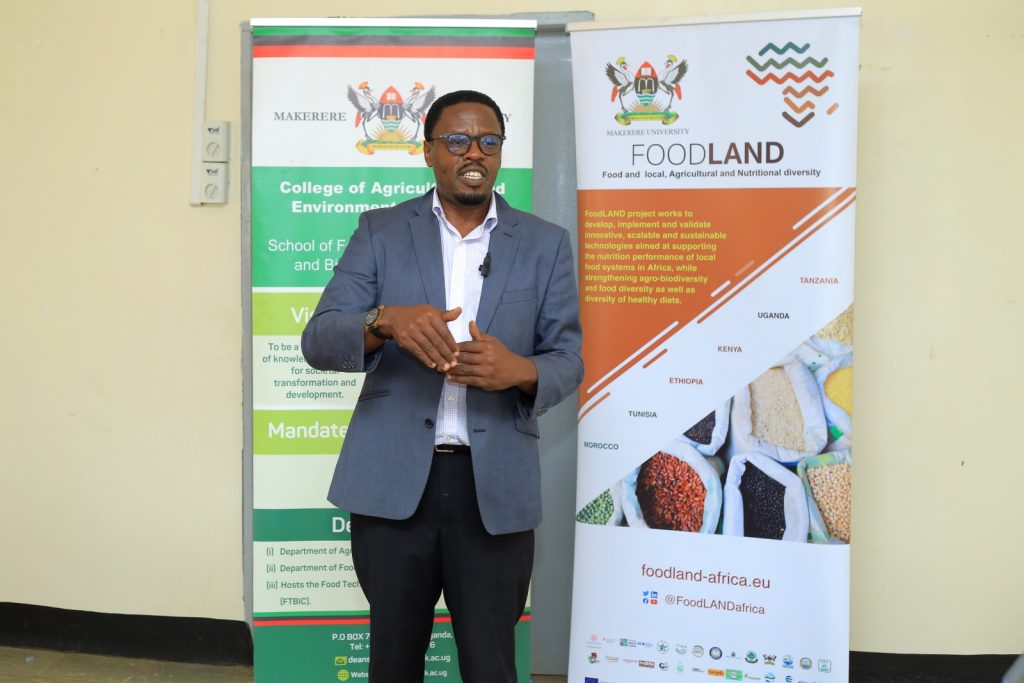
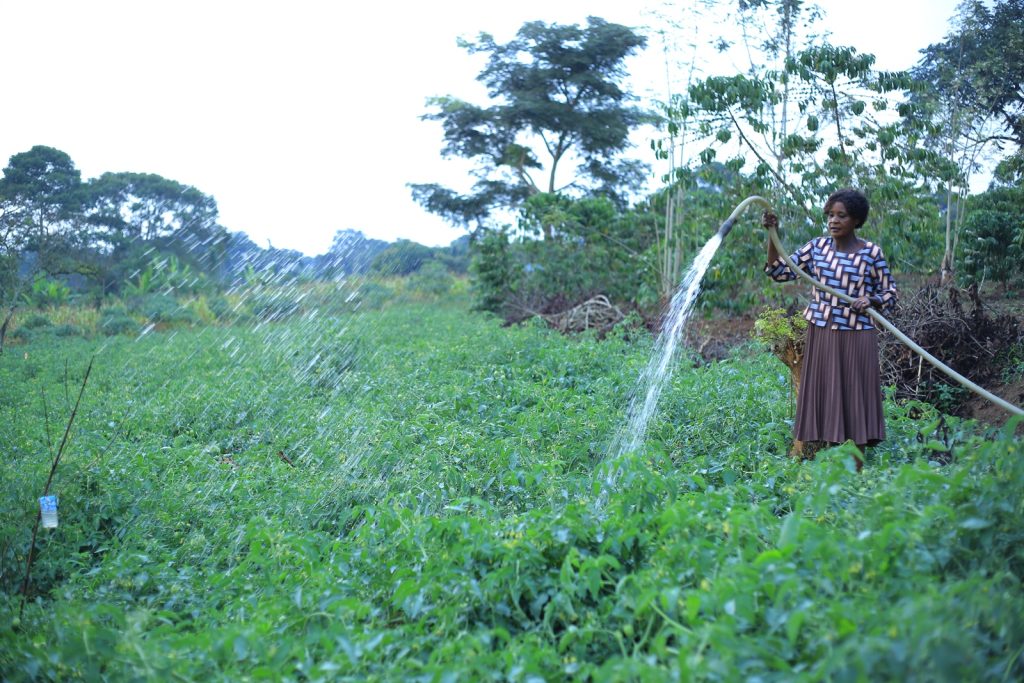
Agriculture & Environment
Mak, Oregon State University Sign Cooperation Agreement
Published
1 week agoon
July 19, 2024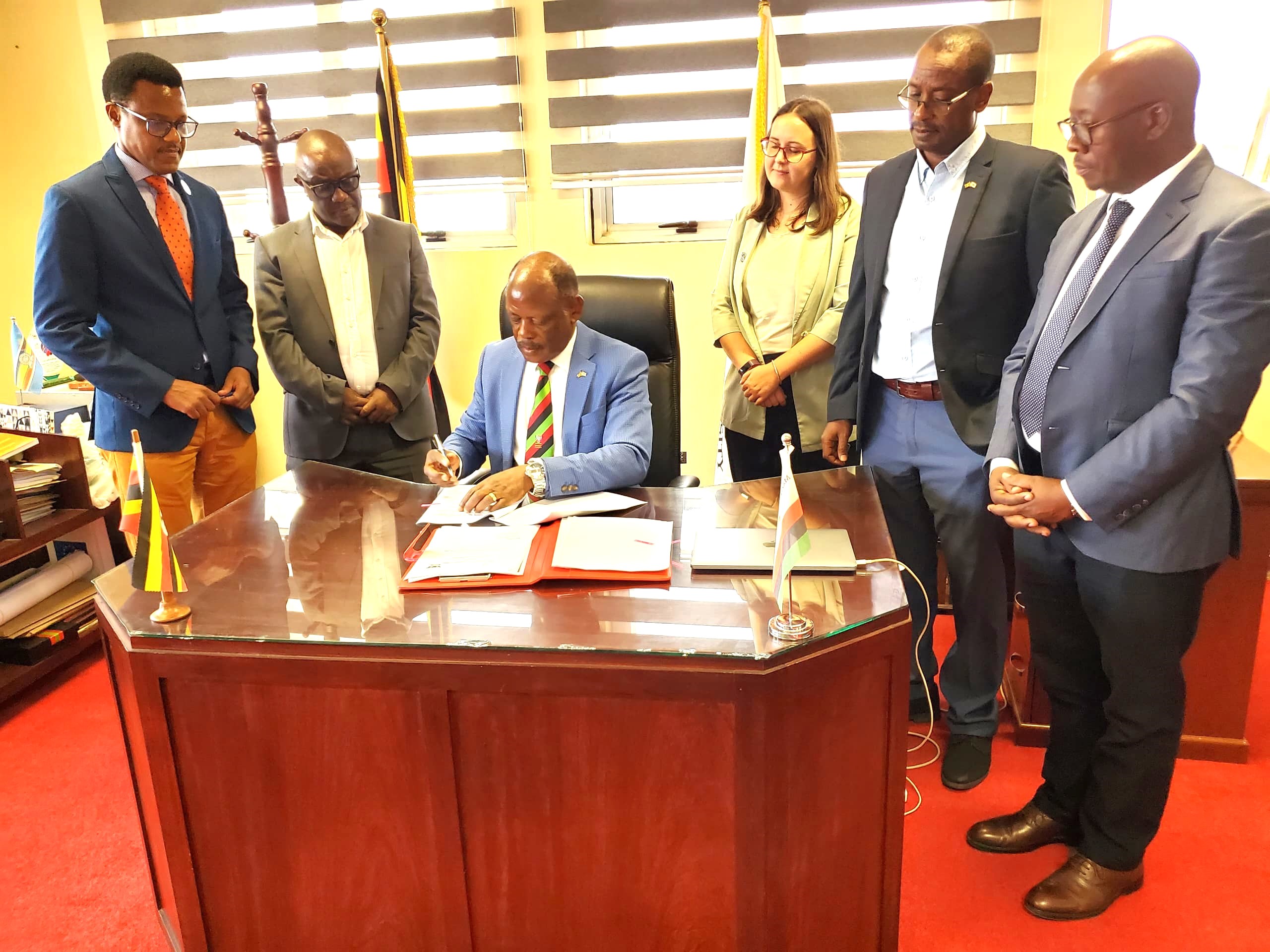
Makerere University Vice Chancellor, Prof. Barnabas Nawangwe on 19th July 2024 endorsed the Memorandum of Understanding between Makerere University and Oregon State University to collaborate in different aspects of academics. The MoU signing ceremony was witnessed by members of staff from the College of Agricultural and Environmental Sciences (CAES) namely; Dr Revocatus Twinomuhangi, Dean, School of Forestry, Environmental, and Geographical Sciences; Dr Lawrence Orikiriza Head, Department of Forestry, Biodiversity and Tourism; and Prof. Jim Ayorekire from the same department. Oregon State University was represented by Dr Ian E. Munanura, an Associate Professor in the Department of Forest Ecosystems and Society, College of Forestry, and Ms. Racheal Fahrenbach, Manager International Programs at the College of Forestry. At Makerere, the MoU will be implemented by the Department of Forestry, Biodiversity and Tourism under the leadership of Prof. Jim Ayorekire. At Oregon State University, it will be implemented by the College of Forestry.
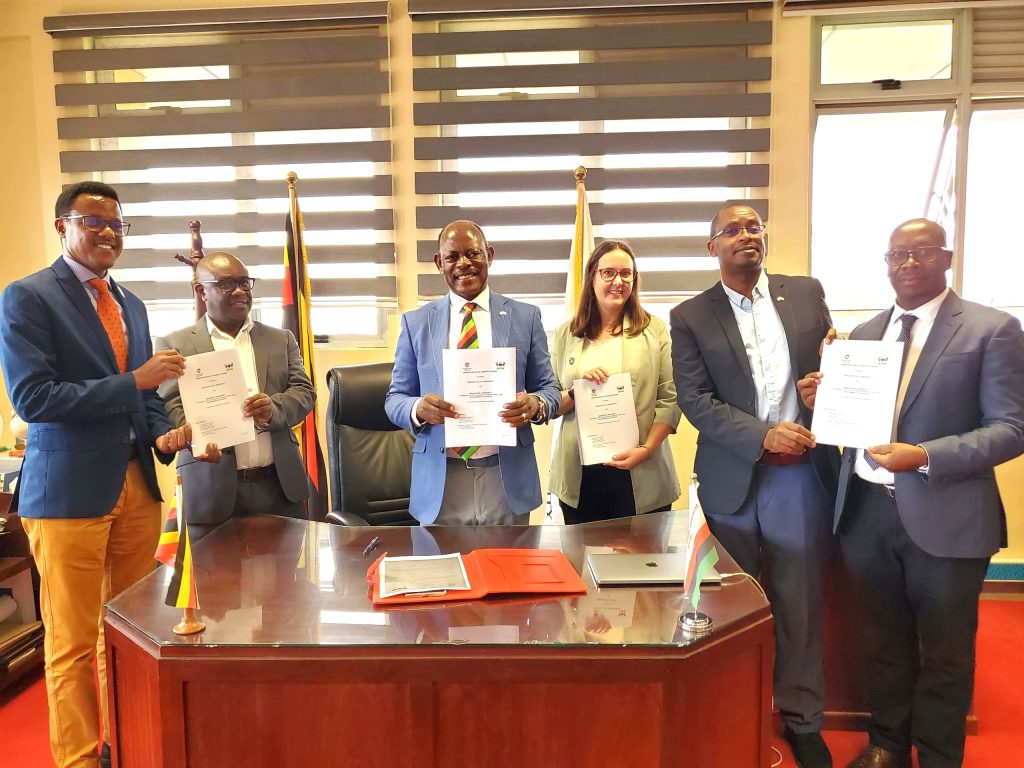
Under the MoU, the two institutions have agree to mutually promote the following programmes, based on their respective academic and educational needs; i) Exchange of scholars and faculty staff, ii) Exchange of undergraduate and graduate students for research and study, iii) Exchange of academic information and materials, iv) Joint research activities and publications, v) Participation in conferences and academic meetings vi) Joint running of short-term academic programs, vii) Resource mobilization in respect of areas of mutual interest, and any other areas which may promote their mutual interests.
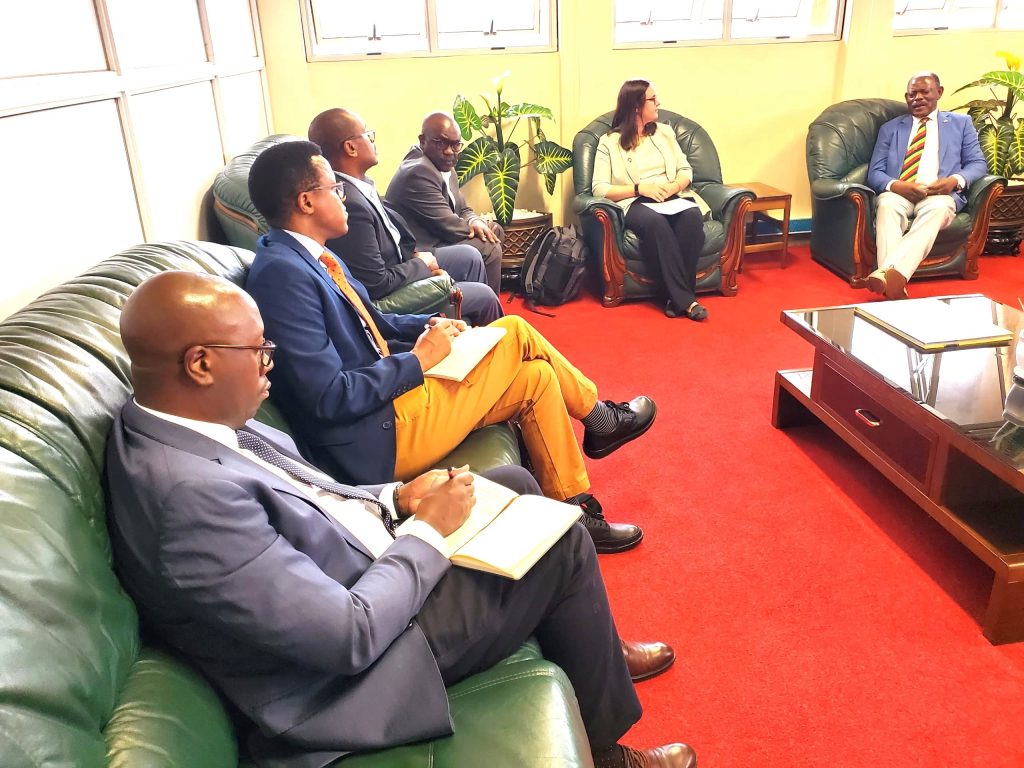
During the ceremony, the Vice Chancellor noted that programmes agreed on in the MoU were in line with the University’s Strategic Plan, and would greatly advance Makerere’s aspiration to become a research-led University. “As we move towards becoming a research-led University, we aim to contribute to the realization of Agenda 2063 which seeks to have Africa produce at least one million PhDs as one of the measures to eradicate poverty from the continent. Partnerships like this will help us achieve our target, by building our supervision capacity,” he explained, pledging support towards the implementation of the MoU.
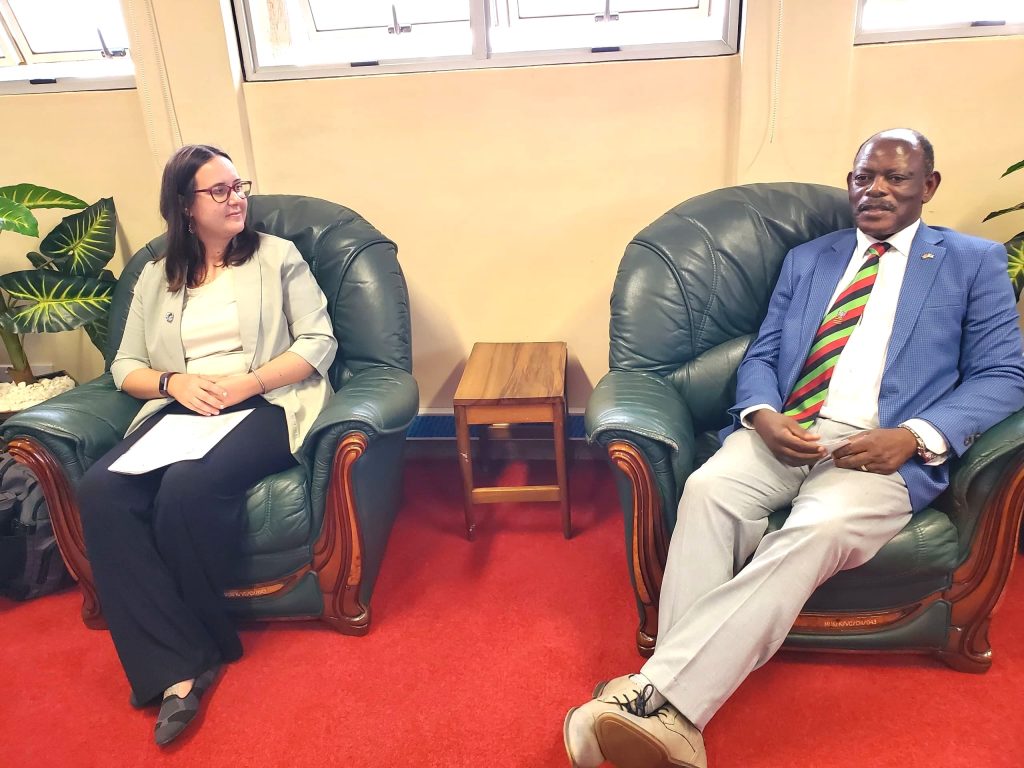
Dr Ian Munanura on behalf of Oregon State University expressed gratitude to work with Makerere, noting that the partnership would strengthen research capacity of the two institutions and support the mentorship of the next generation of scientists to deal with the challenges facing humanity including climate change and unemployment.
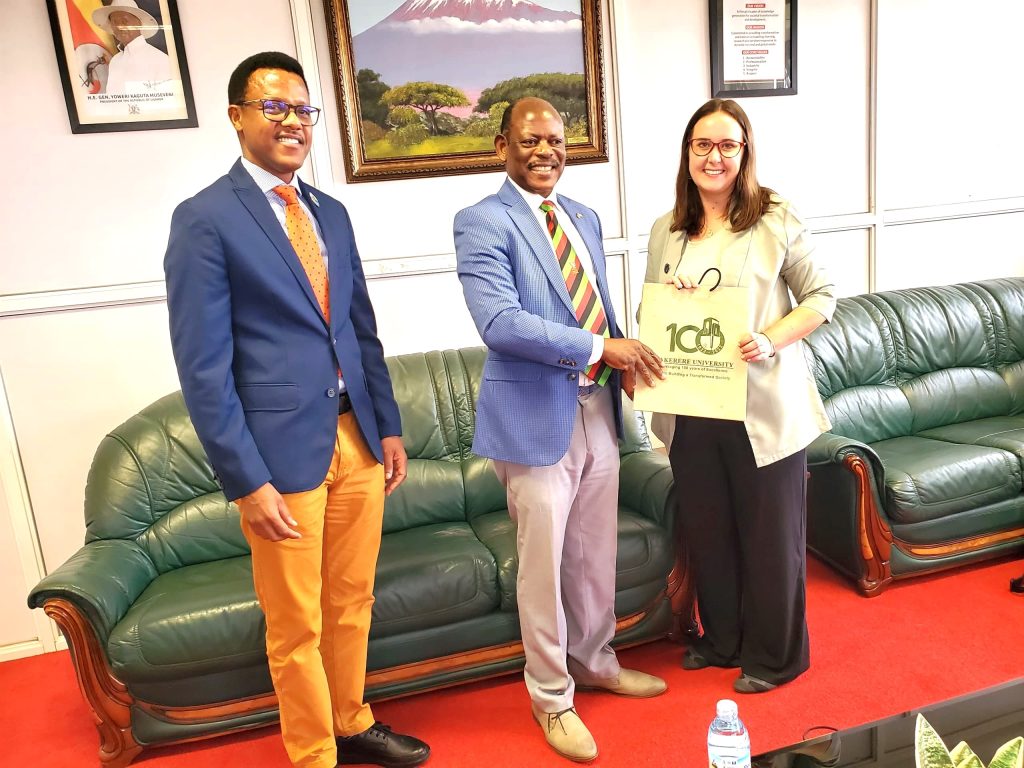
About the Department of Forestry, Biodiversity and Tourism at Makerere
The Department of Forestry, Biodiversity, and Tourism under the School of Forestry, Environmental, and Geographical Sciences at the College of Agricultural and Environmental Sciences, Makerere University offers programmes namely; Bachelor of Science in Conservation Forestry and Products Technology; Bachelor of Social and Entrepreneurial Forestry; and Master of Science in Agroforestry. Specific courses offered under those programmes include; Agroforestry Systems, Practices And Technologies; Drylands Agroforestry; Advanced Community Forestry; Gender Issues In Forestry; Advanced Biodiversity Conservation; Ecophysiology and Agronomy; Forestry For Rural Development; Natural Resource Management; Tropical Forest Ecology And Management; Forestry Business Management; Entrepreneurship In Forestry; Forestry And Food Security; Indigenous Knowledge in Resource Management; Biomass Energy Production and Conservation; Land Use Planning and Watershed Management; Forest Planning and Development; Forest Ecosystems and Livelihoods; and Forest Planning and Development. The Department also conducts a wide range of research in the fields highlighted above. The training offered exposes graduates from the department to a wide range of employment opportunities.
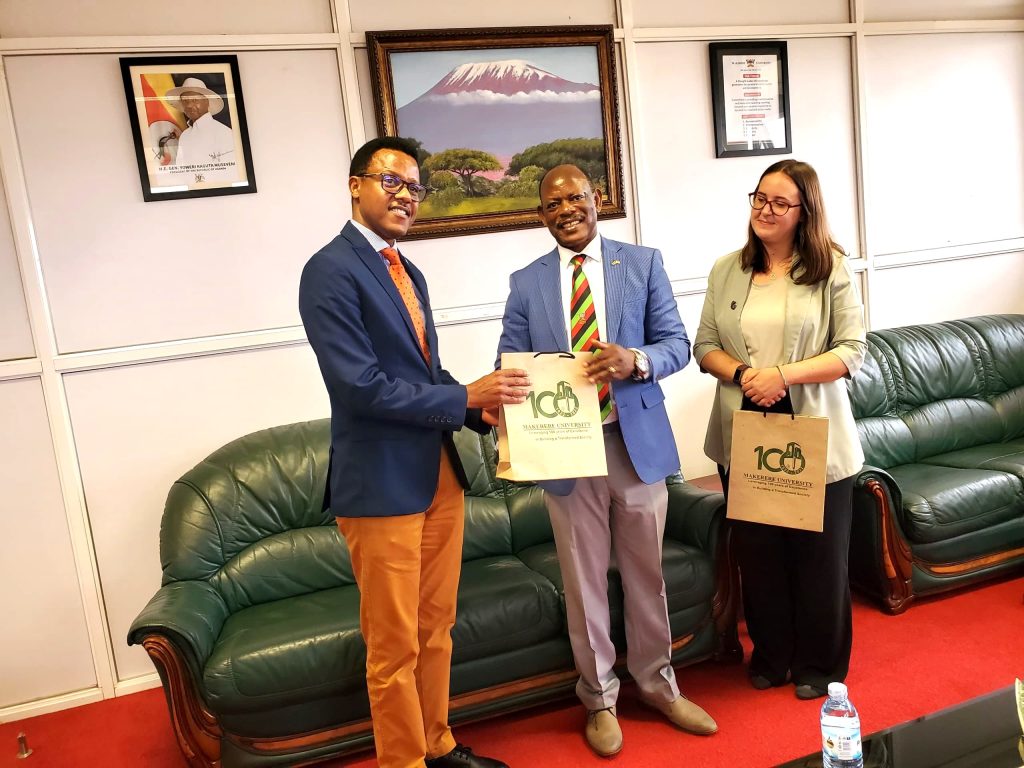
About the College of Forestry, Oregon State University
The Oregon State University College of Forestry is an internationally recognized leader that is transforming education, research and policy for managing and sustaining working forest ecosystems in the 21st century. The College offers a world-class education that provides a wide variety of opportunities following graduation. Academic excellence is the hallmark of the College of Forestry programs at Oregon State University. Ranked as one of the premier forestry schools in the world, students find a variety of programs that offer broad education, rigorous depth and professional focus. The College is known for its collaborative research approach to advance knowledge and bring solutions to issues facing forest landscapes and ecosystems. It takes pride in creating new and innovative approaches to help partners enhance people’s lives while improving the health of lands, businesses and vital ecosystems.
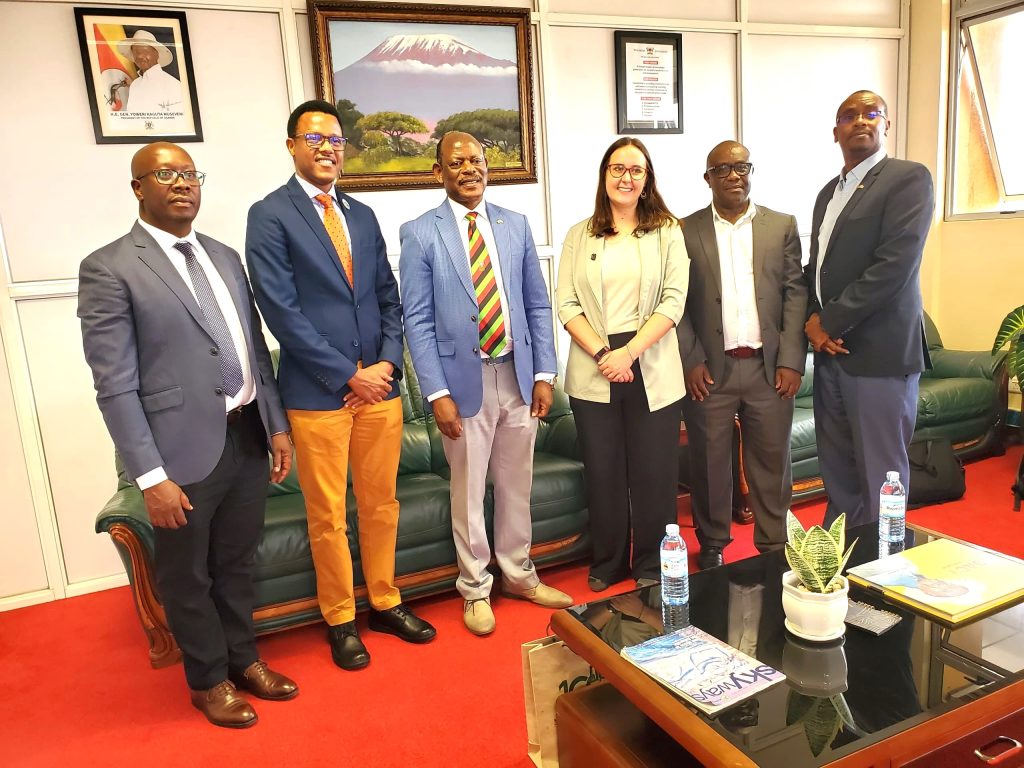
Agriculture & Environment
Call For Abstracts: 3rd International GORILLA Conference
Published
1 week agoon
July 19, 2024By
Mak Editor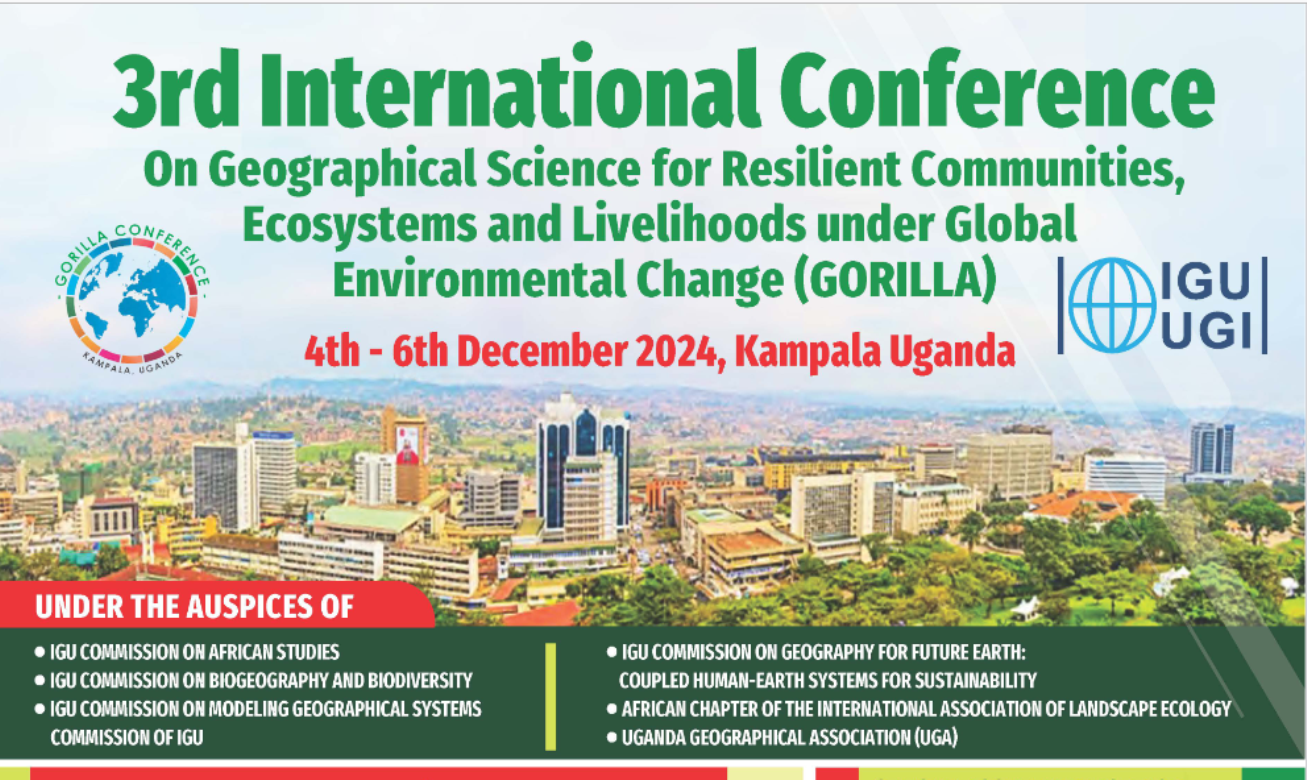
The 3rd International Conference on Geographical Science for Resilient Communities, Ecosystems and Livelihoods under Global Environmental Change (GORILLA) aims to take stock of emerging geographic oriented science and knowledge for advancing the 2030 Agenda for Sustainable Development. The GORILLA Conference seeks to harness geographic science to advance knowledge and foster positive change in understanding and addressing sustainable development challenges and opportunities at local, regional, national, and global scales. The specific objectives are to;
- Facilitate exchange of contemporary resilience building knowledge and innovations in a transdisciplinary manner.
- Enhance dialogue to bridge the science-policy-practice interface to address deficits that are limiting the resolution of pressing resilience challenges and shape policy agendas.
- Enhance capacities and capabilities of early career scientists through mentorship and dedicated training focused on the 2030 Agenda for Sustainable Development.
- Increase knowledge and scientific outputs from Sub-Saharan Africa by facilitating special issue publications
- Provide an opportunity for increased networking and beneficial partnerships from attendees with varied backgrounds and professional affiliations to address complex sustainable development challenges.
Important dates
- Conference Dates: 4th – 6th December 2024
- Deadline for Submission of Abstracts: 30th August 2024
- Latest Notification of Abstract Acceptance: 31st October 2024
Conference Topics
(a) Geographies of Climate Change, Climate Justice and Just Transition: Spaces and Patterns
(b) Biodiversity Informatics, Sustainable Ecosystems, Landscapes and People
(c) Green Growth and Transitions to Land Degradation Neutrality and Net Zero
(d) Water Governance and Watershed Resilience for Sustainable livelihoods
(e) Interconnected Geohazards and Disasters in a Changing World
(f) Polycrisis: Migration, Displacement, Conflict and Humanitarianism
(g) The changing Geography of Agrifood Systems
(h) Nature Based Solutions for Inclusive and Equitable Development
(i) Emerging and Novel Technologies for Societal Resilience
(j) Sustainable Cities and Urban Systems in SSA
(k) Geographies of Energy and Energy Transitions
(l) Environment and Health
Submission of Abstract
A 250-word abstract on the topics of the conference is required for those intending to make presentations. Both oral and poster presentations in the conference will be accepted. In addition, specific proposals for sessions may also be accepted. Abstracts will be submitted online at https://gorilla.mak.ac.ug.
Please see downloads for Conference Materials
Trending
-
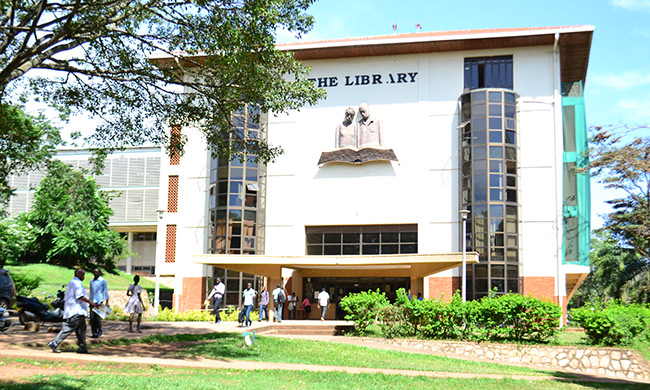
 General1 week ago
General1 week agoDiploma/Degree Holders Admission Lists 2024/25
-
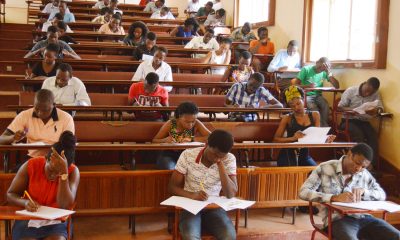
 General1 week ago
General1 week agoAdvert: Mature Age Entry Scheme – Private Sponsorship 2024/2025
-
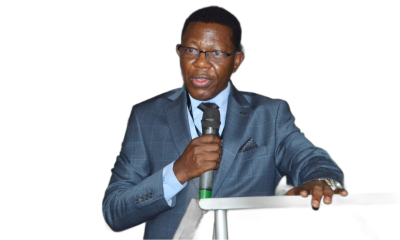
 General5 days ago
General5 days agoProf. Buyinza Mukadasi Appointed Acting DVC Academic Affairs
-

 General1 week ago
General1 week agoAfrican Futures Research Leadership Program: Cohort 5 – Call for Scholars
-

 General1 week ago
General1 week agoNow Open: CADFP Project Requests
